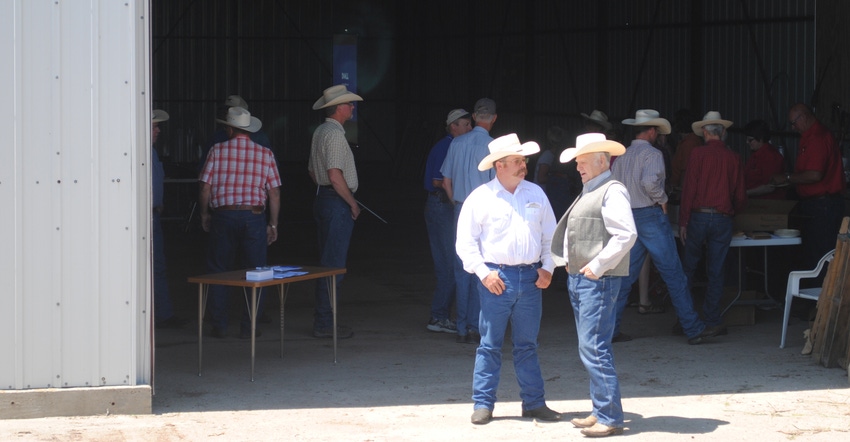
Rural life can be hard. Pressures abound, not only for farmers and ranchers, but also for those serving the ag industry and everyone living and working in a small town.
It takes lots of folks, with different talents and unique perspectives, to make a rural town tick — to keep local churches and schools, chambers of commerce and community clubs, FFA alumni groups, and other ag-related organizations on task and working.
That’s why tempers flare sometimes. We are under pressure. We get impatient with each other, or at the very least annoyed, even with family, friends and neighbors. Sometimes, we complain about hardships, illnesses and anxiety to those we love and care about most. COVID-19, combined with the floods and blizzards of 2019, drought of 2021 and financial concerns on the horizon these days, has everyone on edge. We all seem to be waiting for the next shoe to drop, the next disaster to fall upon us.
That’s why we all need to take a long, deep breath now and then, myself included, especially when we are on edge. They say before confronting someone with a grievance, we need to think about what it is like to walk in their shoes, figurately speaking. That’s called empathy. And we all could use a little empathy sometimes in our lives.
My dad was a master at listening and empathy. I can recall a time when I ran our cultivator into a power pole, and I was afraid to come home to tell him what had happened. When he saw the damage, instead of becoming angry with me as I expected, he shook his head and told me to help him fix it.
“I did the same thing when I was your age,” he told me. “We’ll get it fixed together.” He knew what I was feeling, and he knew that it was an honest accident.
When each person residing in and around a rural community wears numerous hats, you might have a friend, family member or neighbor also serving on the local school board, or the church council, or coaching Little League baseball or youth softball. It is hard to separate those different hats when we are out and about in our communities.
If we are upset with each other, whether it is as a service technician, a county supervisor, maybe one of our children’s teachers or a friend or neighbor, it is always best to wait a while, if possible, before addressing that person with our grievance. This gives us a little time to cool off, research in our minds why we are upset and decide if it really is a big deal or not. Sometimes, it is not.
It is never OK to take to social media with our grievance. In our small towns, we can’t run from each other. We have to face each other directly. That is hard and uncomfortable, but this also serves as a buffer, so we don’t say hurtful things that are unnecessary, and that we really don’t actually mean.
When we are aggravated, it is easy to overstate our position. That’s why thinking about things from the other person’s viewpoint is so crucial.
Neighbors, ag service technicians and business folks we deal with every day all have families and lives of their own, my dad would say. They may be ill. They may be overwhelmed with work or other anxieties and suffering. Try to walk in their shoes and see things from their point of view before getting riled up, he said.
If we can do this successfully, it would change life in our churches, schools, and rural neighborhoods and communities. It would offer us an opportunity for more compassion and less knee-jerk reaction. It would make for better relationships among friends, neighbors and, of course, family.
As we look to a new year, let’s all give each other a break and cut each other some slack, because authentic grievances can be dealt with in a professional, calm manner. If we use a little empathy and keep calm with those around us, our small towns can be an even better place to live, farm, work and raise a family.
About the Author(s)
You May Also Like






